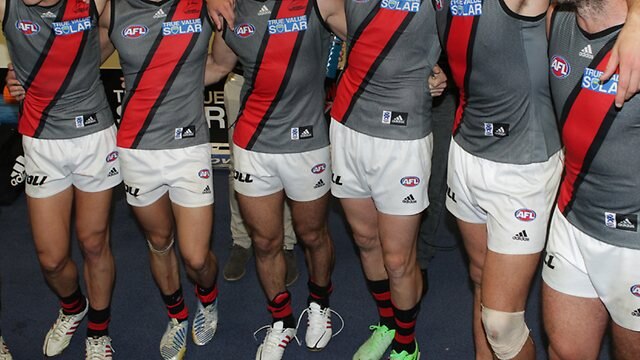Essendon players allegedly admit to taking banned anti-obesity drug AOD-9604 last year

The Bombers said they relied on a document purported to have been issued by the World Anti-Doping Agency approving use of the substance, which WADA confirmed this week was banned.
It is alleged Essendon's former sports scientist Stephen Dank showed a document to Bombers club doctor Bruce Reid.
Essendon does not have the letter, and believe Dank has the only copy.
Several Essendon officials are aware of the letter's existence.
Dank was not available to respond to questions about the document on Wednesday.
It has been reported "half a dozen" Bombers took the drug as part of the supplements program at Essendon last year, the subject of a joint Australian Sports Anti-Doping Authority-AFL investigation.
While AOD-9604 is not banned under category S2 of the WADA code - which lists specific substances - it is prohibited under category S0, which states substances not approved for human use are prohibited at all times.
Reid has been interviewed by ASADA investigators and is believed to have told them of the letter of authorisation.
Essendon coach James Hird also has been interviewed, with other coaches and players to follow.
Dank has not yet agreed to talk to ASADA.
Given he is not employed by an AFL club, he is not compelled to submit to interview.
Asked about an AOD-9604 "authorisation letter" on Wednesday night, an Essendon spokesman said: "The club has launched an AFL-ASADA investigation and an internal review and we will not be commenting until the investigations are completed."
If charged with doping, players would be expected to defend themselves under 'exceptional circumstances' provisions in the WADA code and the AFL Anti-Doping Code, which can have two-year bans cancelled.
WADA's rule 10.5.1 discusses the principle of "no fault or negligence", and is based on athletes proving they did not know what they were being given by sports scientists or doctors.
If an athlete can prove "in an individual case that he or she bears no fault or negligence, the otherwise applicable period of ineligibility shall be eliminated".
The Australian Crime Commission said it had relied on information from ASADA in compiling its report on drugs in sport, which stated several times AOD-9604 was not prohibited.
Melbourne has also been linked to "AOD" in text exchanges between Dank and Demons club doctor Dan Bates, revealed last week.
Bates, who has been stood down by Melbourne, was interviewed by ASADA and AFL officers last week.
"I wish to point out that I will be open and transparent and I look forward to continuing to fully assist ASADA and the AFL in their investigations," he said on Wednesday.